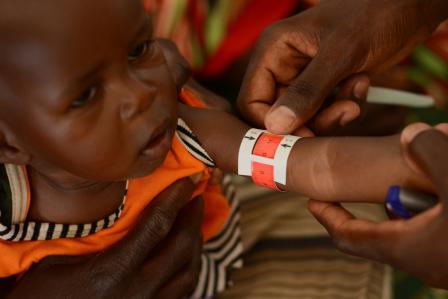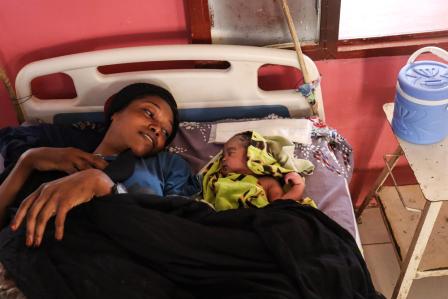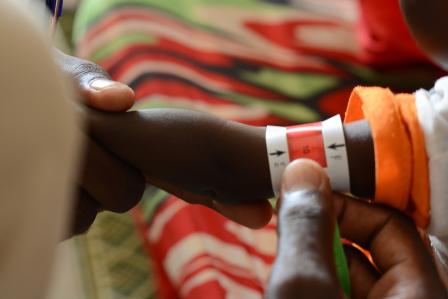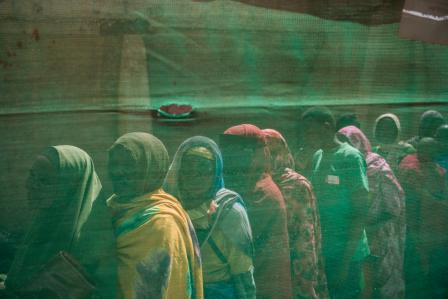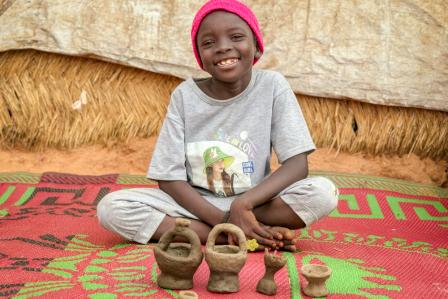Sudan: War is exacerbating humanitarian needs in neighbouring South Sudan
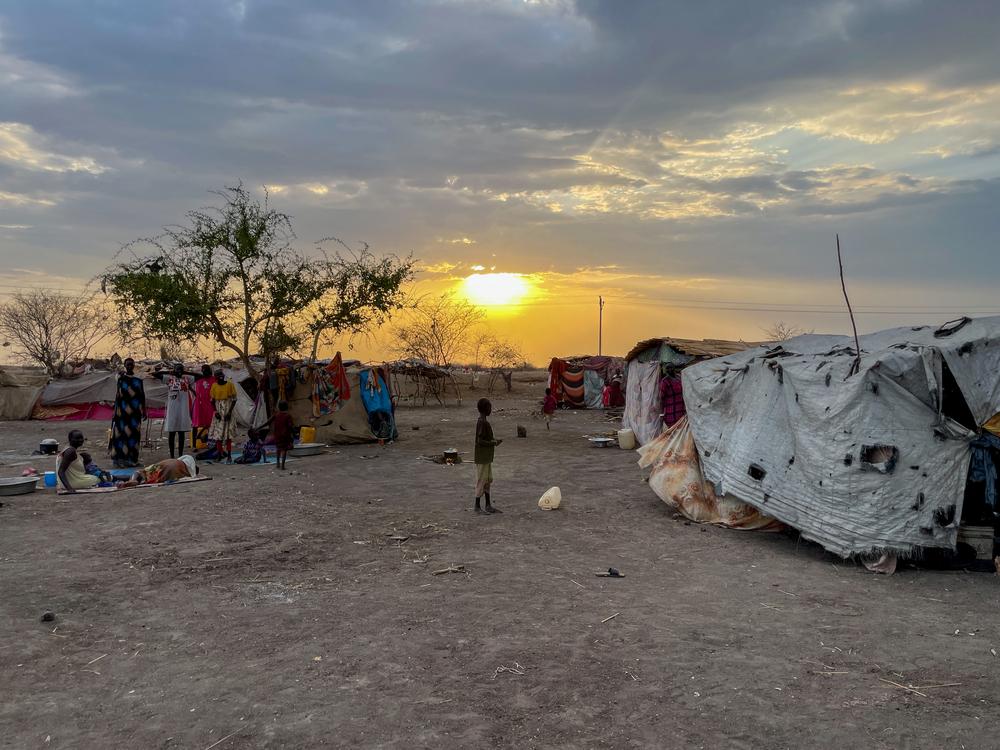
View of the precarious shelters at sunset in the Transit Centre. South Sudan, March 2024. © Kristen Poels/MSF
- South Sudan is one of the most affected countries by the war in Sudan with almost 680,000 people crossing over last year. However, despite the magnitude of this crisis, humanitarian assistance remains critically low.
- The expected increase of returnees in returns and refugees from Sudan is expecting to exacerbate acute food insecurity and healthcare needs among both new arrivals and host communities.
- Doctors Without Borders is calling for a massive scale-up of humanitarian assistance at the border and within the country.
The ongoing war in Sudan is drastically increasing people’s needs across the border in South Sudan, alerts international medical organisation Doctors Without Borders / Médecins Sans Frontières (MSF) today. Doctors Without Borders calls for an immediate scale-up of lifesaving aid for refugees and returnees fleeing the war and for the communities hosting them.
The war in Sudan, which began in April 2023, has created one the world’s largest displacement crises, with more than 10 million people forced to flee their homes. More than 680,000 people (Source: UNHCR and IOM) have arrived in South Sudan since April last year, at a time when the country’s health system and existing humanitarian assistance can barely meet its population’s needs. In the coming months, the pressure on health services and aid organisations is likely to increase, with an estimated seven million people predicted to be without access to sufficient food by July. (Source: South IPC Acute Food Insecurity and Malnutrition Analysis September 2023-July 2024)
Renk in South Sudan’s Upper Nile state is located around 60 kilometres from Joda, the official entry point for people fleeing the war. Some 13,000 refugees and returnees are currently stranded in and around the transit centre in the town. The number fluctuates depending on the onward movements; either they wait to be able to continue their journeys across South Sudan or return home in Sudan. Living conditions are dire and they have limited food, water, shelter, sanitation facilities and medical care.
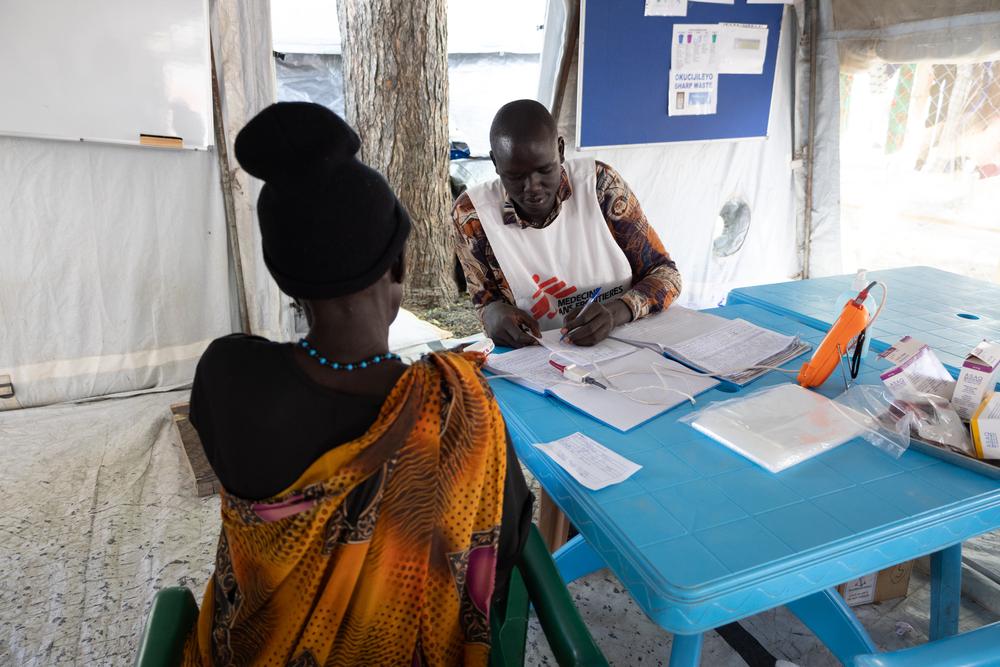
A Doctors Without Borders health worker is carrying out a consultation with a patient inside our clinic at Bulukat transit centre, Malakal, Upper Nile State. South Sudan, May 2024. © Kristen Poels/MSF
Many of those who arrive at the border are injured and acutely malnourished, having walked for weeks to reach safety. Currently, aid agencies provide them with money to buy food for seven days, but many people find themselves stuck at Renk transit centre for weeks or even months, as they wait for transport to continue their journeys.
“Sometimes we manage to eat twice a day, but usually we only eat breakfast, and we go to bed at night with empty stomachs, even the youngest ones,” says Dak Denj, a 70-year-old cattle herder who has been staying in Renk transit centre since December 2023.
- Read Dak Denj's story
Dak Denj, a 70-year-old woman, fled the war with her family of 17. The youngest member, just 5 months old, was born during a long stopover in Sinda as they escaped the conflict. Despite the mother having no assistance during the birth, everything went well.
"We lived in Khartoum for 10 years since we fled from the South Sudanese conflict in 2013. When the war started in Khartoum in April 2023, we thought it wasn’t so serious and that it will stop soon. But then it got serious with heavy bombings from the planes so we realized it was bad. We decided to leave for Madani, in the south, where we had relatives. On the way, there were many checkpoints and the soldiers took everything from people on the move: money, phones, food. They even forced some young men to follow them and got enrolled in the fights. Those above 18 years old, didn’t have the choice. If they refused they would be killed.
"After heavy fights in Madani, we were feeling unsafe, lot of families decided to leave at that time. We needed to go too. Thanks to some money saved from Khartoum and the sale of goat’s cattle, we managed to arrive in Joda by bus. It was in December 2023. We received 12 600 SSP per person when we arrived and since that time, nothing more. I try to go and find some firewood and sale it and other women in the family try to find some little jobs at the market but it’s not enough. It’s very difficult to get something to eat. Sometimes we succeed to eat twice a day but usually we only eat for breakfast and then we go to bed at night with empty stomachs, all of us, even the young ones. We decided to sale our clothes and some kitchen dishes to get more money but it’s not enough. Now we don’t have anything left but we don’t know where we can go. Wherever we are, the situation is not good.
"The worst is for our children because they don’t have any education. I’m not happy today, everything is hard. Back in Khartoum we had a nice life, everybody was safe. Here, sickness is everywhere, especially because of the bad water. Children have stomach ache and diarrhea. When we are sick we can go to Doctors Without Borders mobile clinic but we will only get medicines to relieve the pain. Nothing can cure hunger and bad living conditions. Lot of people also suffer from mental health issues and they can get support from Doctors Without Borders but it’s the same problem, it’s only short term. We know we won’t get better as long as we live like that. After the extreme heat, the rainy season will come and we don’t even have plastic sheets to protect the children. Who will take care of us when it happens? Who will protect our shelters?
"I can’t say that we regret being here because with had no other choice than leaving. We understand it is a hard situation for everybody and we know we have to be patient but we really need more help. From the latest news we had from Khartoum, it seems that our house hasn’t been destroyed but it is completely empty, everything inside was stolen, there is nothing left. At some point, we would like to go back because there we were able to work. Here there is nothing we can do.
"I’m very disappointed of course but what can we say? There is conflict here, war over there… This is life. There is nothing else I can do than praying for a better life and asking for help. The future is very dark. We see nothing good coming. We are only trying to survive, but without education for our children, there is no hope.
Around 300 kilometres from Renk, thousands of refugees and returnees are living in Bulukat transit centre, near Malakal town. Shortages of food, water, shelter and proper sanitation have led to increases in illnesses such as diarrhoea and respiratory infections, according to Doctors Without Borders medical teams.
The continuing influx of refugees and returnees to South Sudan is likely to worsen already acute shortages of food and water among both new arrivals and host communities and make it even harder for people to access medical care.
Before April 2023, 30 to 50 severely malnourished children were admitted each month to the inpatient malnutrition treatment centre at Doctors Without Borders' hospital in Malakal town. Since the outbreak of war in Sudan, the number of severely malnourished children admitted to the facility has increased by 200 per cent.
Children who are malnourished are more vulnerable to other life-threatening diseases. “Malnutrition increases the risk of infection, particularly among children under five, who are more likely to die from diseases such as meningitis, measles, yellow fever, cholera and malaria,” says Doctors Without Borders medical coordinator Dr Eltigani Osman.
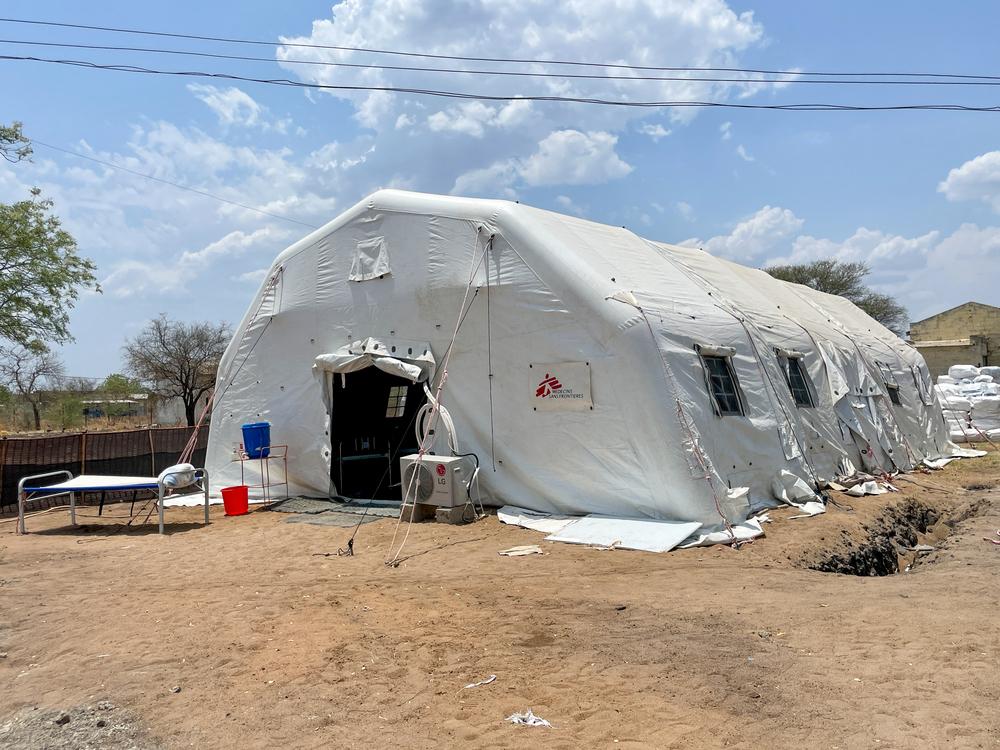
Due to lack of space in Renk Civil Hospital, Doctors Without Borders built a tent to accommodate more patients. However, extreme heat conditions pushed temperatures inside to over 50 degrees, endangering medical equipment and therefore the lives of patients. South Sudan, March 2024. © Kristen Poels/MSF
Water shortages across the region are forcing people to collect water from rivers. Drinking untreated water, which may be contaminated, poses additional health risks, particularly in a region prone to cholera outbreaks. These risks are likely to increase with the approaching rainy season, which is expected to cause serious flooding across the region, contaminating wells and boreholes and hindering the humanitarian response. Flooding on the Sudanese side of the border could push even more people to flee to South Sudan.
Aid organisations are currently struggling to respond to the crisis and assist everyone in need. Since April 2023, Doctors Without Borders has been running a clinic at the main border crossing and two mobile clinics around Renk and Bulukat, which treat around 190 patients each day, as well as supporting Renk hospital. However, this is not enough, and the scale of the crisis demands a much larger international response.
The humanitarian response remains inadequate to the reality of the needs, in a context where there is already considerable strain on the health system. We urgently call on international donors to allocate funding to address the needs of the returnees, refugees and host populations in South Sudan. This must include the provision of food, water, shelter, sanitation and medical care, as well as the means for people to continue their journeys.Iqbal Huda, Head of Mission



